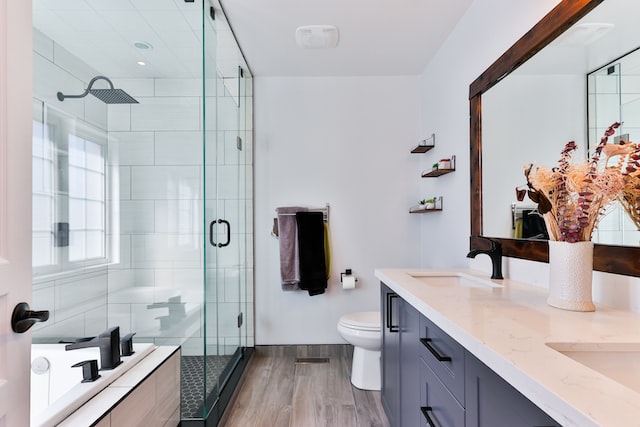Knowing when it’s time to start potty training your toddlers is one of the most difficult moments to nail down for any parent. This is simply because every child might be ready at a different point in their life. There are many signs to look for and even more differences in approach. That’s why we have gathered some of the best experts on the subject to help answer the most common questions there are and in turn, make it easier for the parents!
How do you know when your toddlers are ready for Potty Training?
Every toddler is a little bit different and will show signs of readiness for potty training at different points. A good rule of thumb is that toddlers don’t have the ability to control their bladders until about 2 years old, give or take. The most important thing to consider is whether your toddler is showing signs of readiness. Readiness signs include being interested in the toilet, asking questions about going to the bathroom, telling you that their diaper is wet or stinky, and wanting to be changed when they dirty their diaper. If your toddler is doing those things then it’s time to start talking about potty training and sitting on the potty a few times per day to get used to the process!
– Erin, Freelancing Mama
How should parents handle accidents?
When potty training there are always going to be some accidents. Depending on how well it’s going, will determine how many obviously. I was lucky in that I didn’t experience too many. Apart from the time I had to catch a poo falling out of a pair of pants to save my cream carpet, but we won’t dwell on that one! I waited until all three of my boys were 3 rather than giving into peer pressure, and they then nailed it within 10 days.
But the best thing to do with an accident is not to lose your cool, don’t make a big thing about it (even though you may want to scream if it’s the third accident in the past hour!) and just try to keep positive. Praise them for trying hard, bribe them if you have to! Just try to remember that this is all new to them and you telling them off for having an accident isn’t going to help anyone. It’s likely to make matters worse.
– Helen Copson, Twins, Tantrums & Cold Coffee
What’s the role of a nanny when it’s time for potty training?
Ensuring all parties including both parents, any grandparents, and nannies in the potty training plan is vital for its success. Everyone should be consistent to support how the child identifies and communicates the need to use the toilet. Parents and nannies should also be aligned on the words and tools used to reward the child when they are successful. Having everyone on the same plan will reduce confusion and help the child feel supported.
– Liz, US Nanny Institute
How does one handle potty training regression?
We all want our kids to be done with potty training as soon as possible. And it can be extremely frustrating when you think you’ve overcome a hurdle, and then realize you’re back at square one. If this happens to you, don’t freak out! Our children are very perceptive, and they take their cues from the people closest to them. If you’re emotionally upset or discouraged, your child may feel that way too. Instead, treat potty training the same way you would teach your child to wash his or her hands. Create a routine for them that includes regular time on the potty so they know what to expect. And try to make it fun! My boys had a blast practicing their “aim” at cheerios floating around in the toilet bowl. Also, try not to compare the time it takes to potty train to other kids, including your own. Every child is unique and you never know what to expect. That’s the joy of parenting, right? The good news is kids have a natural way of figuring this stuff out. I’ve never seen a high school student still in diapers.
– Sunny Gault, New Mommy Media
Why does potty training sometimes turn into a battle of wills?
Potty training sometimes turns into a battle of the will when:
- Parents or children get frustrated,
- Parents lose patience or,
- Potty training isn’t done at an appropriate time (during a busy or difficult period for the family). Potty training may become a bitter experience when parents lose patience, so it’s important to keep it together or make sure you’ve chosen the right time for potty training.
– Rebecca, How Do I Homeschool
Is there a way to teach potty training as play?
Play-based potty training is a great way to get a young child interested in potty training. Nowadays, there are products available that allow parents to tackle potty training through play. This is great because it can help set the child up for success when they start potty training themselves. Products such as a potty training doll (a doll that can drink water and then “goes pee”) or The Potty Duck (a small rubber duck and toy toilet that can be used in the bathtub) can be introduced to a child before they actually ever sit on the toilet themselves.
Using these products parents can show the child how the doll or duck goes pee on the potty. The adult can make a “peeing sound” (Psss) every time the doll or duck is peeing. Allowing children to play with these types of toys can prepare them for sitting on the toilet themselves!
– Tanya Thibodeau, M.Cl.Sc., Hons. B.A. Seeme & Liz
Does my child need to be verbal before they can be potty trained?
Absolutely not! Peeing and pooping on the potty are physical skills, and they don’t need a word said to be done successfully. What they do need is easy access to the potty, and regular opportunities to sit on the potty. Once a child starts showing interest (often between 20-26 months), you can put them on the potty as part of your bedtime and wake-up routines, and whenever you use the toilet, as well. At first, it will just be sitting, but one day they will have a “happy accident,” and you can celebrate with them! At that point, they can figure out which muscles to tighten and which to relax to make it happen when they want it to. Before disposable diapers came along the average age for potty training was 24 months, so don’t be scared to move forward if your child is ready.
– Faith, Joyful Toddlers
Are praise and rewards good motivators?
On the whole, I don’t believe in rewarding kids—especially toddlers—as it inhibits their natural curiosity and drive to competency. Parents can encourage certain behaviors by pointing out how a child’s action has resulted in good things. For example, a child might observe, “When you ask nicely, I am more than happy to share with you.” Or “You’ve been working on building that tower for 5 minutes. Now you can build a six-block tower! You are very persistent.” Of course, both would be said with a warmth that would suggest approval, but the approach is less about “Good job! Good boy!” and more about identifying a positive trait.
With potty training, you might use a special book or toy as an incentive to sit on the potty. The toy or book is not a reward for sitting on the potty; it is just that the child can only read/play with it while sitting on the potty. I recommend the same approach for getting toddlers to get into their car seats and stay buckled up: “When you are buckled into your car seat, you may have your car T-rex.” The real key to potty training is to follow the child’s lead supportively but not to have anything invested in the timing of the child’s mastery. The more you can use language like, “When you decide to use the potty, Mommy and Daddy are here to help you,” the more respectful it is of the child’s right to control his body.
– Elisabeth Stitt, speaker, and coach, Joyful Parenting Coaching
Can A Child’s Temperament Affect Their Potty Training?
Since potty training is something your child has to be ready and willing to do, it’s important to take their personality into consideration when coming up with an effective strategy. Every child’s temperament varies, so learning what works for your toddler is critical to their success. For example, a shy or cautious child might benefit from practicing with a doll on their potty first so they can warm up to the idea of using it themselves. An easily distracted child would most likely benefit from using a timer as a reminder since they might miss their cues while playing. A child used to routines could benefit from regularly scheduled potty breaks. No matter the disposition of the child, many toddlers respond well to using rewards as incentives.
– Alice Anderson, Founder, Mommy To Mom
How involved should the nanny be when potty training?
Nannies are directly involved in supporting parents in nearly every aspect of raising their children. There are literally dozens of potty training books, from strict parent-led styles to more gentle child-led styles, of potty training. Nannies help potty train children in the style the parents prefer. If the parents don’t know how to potty train their child, professional nannies can share their knowledge so that the parents and caregiver are all on the same page and consistent while potty training the child.
– Stephanie Felzenberg, Be The Best Nanny
Are there things I can do beforehand to help prepare my toddler?
Potty training is a big step in a toddler’s life. In order to prepare them for success, I recommend introducing them to the concept before they start the potty training process.
Introduce your toddler to potty training by making potty training talk a part of everyday conversation. Talk about what happens when they go and what happens afterward. Most importantly, let them know it’s something everyone does and that it’s a big step toward becoming a big kid. Reading potty training books and watching fun potty videos are also good ways to prepare your child. Select books that you both can look at together with pictures that help explain the process. Find videos with fun songs and characters that are enjoyable to watch. Also allow your toddler to sit on the potty to become familiar with it. Let them explore it, play around it, and get familiar with it so that when it’s time to start using it, they are already comfortable.
Doing these things allows your toddler to become familiar with potty training without the pressure of doing it before they’re ready. Once you’re ready to start the training process with them, they’ll understand it and know what to expect, which should cut down on resistance and make the process a lot easier for you and for them.
– Jennifer McCurtis, 123 Potty Train Me
When should I stop putting a nighttime diaper on my child?
We recommend once the child begins to show signs that they are ready to potty train this is a positive sign that it is time to steer away from diapers. There are many signs that the child/toddler may be ready, but here are a few; the child/toddler takes the diaper off on their own, takes their clothes off on their own, says they have peed or pooped, and also wants to sit on the potty.
Another good sign is that the toddler stays dry through nap time. If you see this happen for several days in a row, then we would recommend moving to underwear at that point. Your toddler may still have accidents but this is normal. Once you move to underwear you will want to have your child/toddler on a very good schedule to use the potty. We would recommend starting off every 15-30 minutes and moving up to 45 minutes as you see fit. You want your child/toddler to become comfortable on the toilet and help them to have good bladder and bowel habits.
– Carey Ownby, PottyMD
Is it best to keep using diapers and pull-ups or go straight to underwear?
Families are all in unique situations with the amount of time, support, experience, and capabilities they have. That said, there isn’t a particular ‘go-to’ as far as whether families should use diapers (in which I would definitely include Pull-Ups (R)), or go straight to underwear. In most cases, I would just say for the family to ‘add a layer’ to whatever method they were using. If they had naked time then add undies or a pair of easily pull-downable pair of shorts. If they already had success with undies then add pants/shorts. Diapers with stretchy bands are highly unnecessary in nearly all typical children’s situations
– Michelle Swaney, CEO, The Potty School
There are many aspects that may require hands-on experience to grasp completely when potty training your toddlers, as with everything, one learns more in practice than with theory. Regardless, these tips may prove to be useful enough to clear out some of the more elusive moments of the parenting journey in the very early stages of it. But remember, patience is one of the key elements, with that, one can achieve almost anything!




